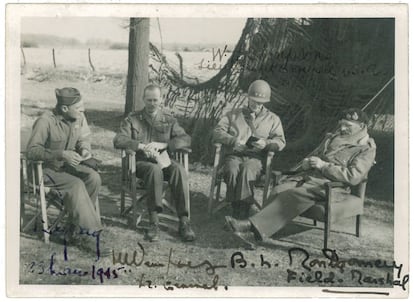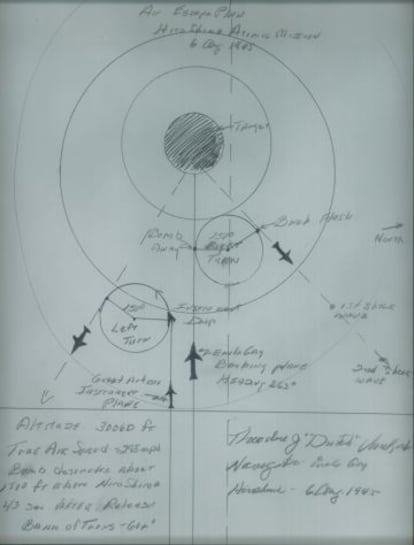Spain loses major 20th-century historical archive
Castañé Foundation donates part of collection after failing to reach deal with ministry


A treasure trove of over 2,700 documents shedding light on the wars of the 20th century is to end up at Harvard University’s Houghton Library after the Madrid foundation that owns it was unable to reach an agreement to keep it in Spain.
The documents are part of a larger compendium of approximately 7,000 items collected over the years by the financier José María Castañé. One of the largest private collections in Europe, it includes letters, telegrams, reports and photographs relating to both world wars, the Russian Revolution, the Holocaust, the atomic bomb, and the reconstruction of Europe after 1945.
“All we wanted was for the collection to stay in the hands of a top-tier institution that could guarantee its preservation under the best conditions”
The Castañé Foundation said it had failed to reach an agreement with the Spanish Culture Ministry to keep the entire collection in Spain, and that the part of the archive relating to World War II would be handed over to Harvard free of charge.
The rest of the collection, which covers Spain’s Second Republic, the Civil War (1936-1939) and the early years of the dictatorship of General Francisco Franco, will be divided between the Castañé Foundation in Madrid and the Residencia de Estudiantes, a student residence in the capital where many well-known writers and artists stayed in the 1930s.

“The bequest will have a significant impact on the development of our collections and on the international research community, which will have easy access to these important documents,” said Leslie A. Morris, curator of modern books and manuscripts at Houghton Library in Boston.
Set up 20 years ago, the Castañé Foundation’s collection of 20th-century material includes printed matter relating to Franco, Hitler, Stalin, Mussolini, Churchill and De Gaulle, along with documents that shed light on Germany’s network of concentration and death camps, as well as the mass killings carried out by different totalitarian regimes and the Nuremberg trials.
“All we wanted was for the collection to stay in the hands of a top-tier institution that could guarantee its preservation under the best conditions, along with access to researchers, with no money involved,” said José María Castañé about the deal with Harvard. “Both institutions will work together to encourage global access to these materials.”
Castañé said he originally proposed donating the collection to the archive of the Reina Sofía contemporary art museum in Madrid, but that the education and culture minister at the time, José Ignacio Wert, wanted it to join the Civil War archive in Salamanca. Negotiations stalled after that.
Invaluable material
The Castañé Foundation’s collection of over 7,000 documents is largely focused on World War II, but it also contains invaluable material relating to pre-revolutionary Russia, as well as the Soviet Union itself. It also includes material about the Spanish Civil War that has attracted the attention of a growing number of historians and researchers.
Tu suscripción se está usando en otro dispositivo
¿Quieres añadir otro usuario a tu suscripción?
Si continúas leyendo en este dispositivo, no se podrá leer en el otro.
FlechaTu suscripción se está usando en otro dispositivo y solo puedes acceder a EL PAÍS desde un dispositivo a la vez.
Si quieres compartir tu cuenta, cambia tu suscripción a la modalidad Premium, así podrás añadir otro usuario. Cada uno accederá con su propia cuenta de email, lo que os permitirá personalizar vuestra experiencia en EL PAÍS.
¿Tienes una suscripción de empresa? Accede aquí para contratar más cuentas.
En el caso de no saber quién está usando tu cuenta, te recomendamos cambiar tu contraseña aquí.
Si decides continuar compartiendo tu cuenta, este mensaje se mostrará en tu dispositivo y en el de la otra persona que está usando tu cuenta de forma indefinida, afectando a tu experiencia de lectura. Puedes consultar aquí los términos y condiciones de la suscripción digital.








































